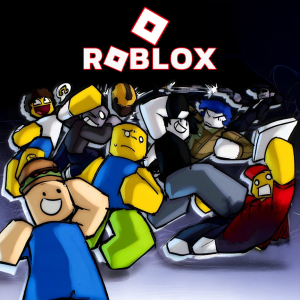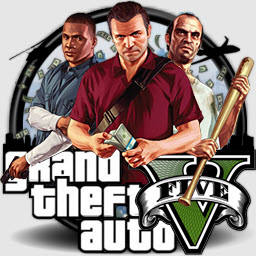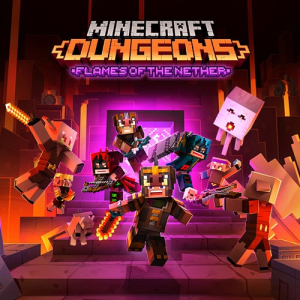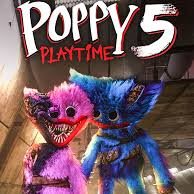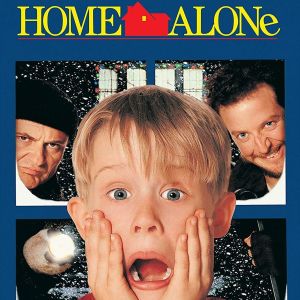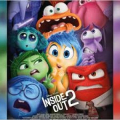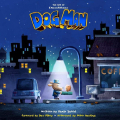Home Alone
The holidays have always evoked a sense of magic and warmth, and for children growing up in the 90s, "Home Alone" is a staple of that nostalgic period. The 1990 classic, directed by Chris Columbus and written by John Hughes, is often considered more than just a film; it's a cultural phenomenon that has cemented its place in holiday tradition. But what is it about this movie that continues to captivate audiences across generations?
At its core, "Home Alone" combines childhood fantasies with a sense of adventure and independence that every kid once dreamt of. Imagining themselves in Kevin McCallister's shoes, young viewers experience the thrill of having an entire house to themselves coupled with the indescribable fear of being on one's own. What makes "Home Alone" a noteworthy subject for review is its ability to intertwine humor, the absurd, and the warmth of familial love into a cohesive narrative.
History and Background
The genesis of "Home Alone" lies within the creative mind of John Hughes, who was inspired by his own experiences as a parent. The screenplay reflects Hughes' signature style, characterized by his depiction of the trials and triumphs of youth. Released in November 1990, the film became an instant box-office success, eventually earning its place as the highest-grossing live-action comedy until it was surpassed years later.
The movie's success was largely attributed to Hughes' storytelling prowess and Columbus' skillful directing. Together, they managed to create a story that, despite its implausibility, resonated with audiences of all ages. It's worth noting that "Home Alone" also owes a part of its charm to the holiday season, during which it often gets its revival, providing an alliance between nostalgia and the festive spirit.
Setting the Stage
Set in the bustling suburbs of Chicago, the film begins on the eve of a family Christmas trip to Paris. The McCallister household is in chaos with relatives and kids scurrying about, setting the tone for the comedic unraveling of events that lead to Kevin being left behind. This setting, while lively, foreshadows the eeriness and eventual quietness that transpires when young Kevin awakens to an empty home.
The decision to film in a real suburban neighborhood rather than on a set lends authenticity to the film and makes the spectacle of the huge, now-empty home all the more compelling. This setting choice reinforces the film's dichotomy - the domesticity and warmth of Christmas versus the unsettling realization of isolation.
The Interesting Premise
What makes "Home Alone" particularly interesting is the interplay between fantasy and reality. Most children, at some point, have fantasized about having complete autonomy over their house, eating whatever they want, and watching TV uninterrupted. Kevin McCallister, played by the exceptionally talented Macaulay Culkin, embodies these dreams.
However, the film takes a detour into the fantastical by introducing clumsy yet determined burglars Marv and Harry, played by Daniel Stern and Joe Pesci. Kevin's transformation from a frightened boy to a master of defense is amusingly unrealistic yet throttling in terms of its imaginative twists. This youthful ingenuity serves as a cornerstone of the film's timeless appeal.
Kevin McCallister: A Heroic Figure
At the heart of "Home Alone" is the character of Kevin McCallister, whose evolution from an underestimated youngest sibling to an inventive mastermind is central to the film’s charm. Macaulay Culkin's portrayal of Kevin is both precocious and endearing, capturing the spontaneity and mischief of childhood in every scene.
Kevin's journey is not only entertaining but also inspirational. He learns to confront his fears, adapt, and even shows a sense of responsibility eventually. The independence he displays, albeit in an exaggerated fashion, is aspirational and imparts a message of self-reliance that even adults find refreshing.
The Comedic Elements
One of the paramount features of "Home Alone" is its robust humor. Much of this humor derives from the slapstick comedy famously executed by Stern and Pesci. The elaborate, almost cartoonish, traps laid by Kevin are the epitome of comedic absurdity. The burglars' mishaps, whether it be stepping on ornaments or falling victim to swinging paint cans, are exaggerated yet universally amusing.
This blend of physical comedy with Culkin's witty retorts and antics renders the movie timelessly funny. It's the sort of humor that appeals across demographics, be it the youthful giggles of children or the nostalgic chuckles of adults who recall their first viewing.
The Plausibility Question
While the humor and creativity are undeniably entertaining, the plot's plausibility often leaves one questioning. Would any eight-year-old realistically possess the presence of mind or the resources to outwit two adults in such a fashion? Probably not. Yet, it's within this realm of imaginative license that "Home Alone" comfortably sits.
By suspending disbelief, viewers are invited to engage in a purely entertaining spectacle. The implausibility is part and parcel of its charm, crafting a tale that, while unlikely, is incredibly engaging and fun to witness.
Family Dynamics
Beyond the antics and humor lies a subtle portrayal of family dynamics. The McCallister family, in its hurried and stress-induced state, showcases the universal chaos of holiday preparations. The sometimes overwhelming nature of familial love is presented through simple, relatable exchanges.
The arc of the family, particularly the mother's relentless journey back home and the eventual heartfelt reunion, serves as a reminder of the unconditional bonds that hold families together, even amidst accidental missteps and misunderstandings.
The Theme of Isolation
A significant theme in "Home Alone" is the concept of isolation. At the start, Kevin's desire for solitude resonates as a fleeting childhood wish. However, as he finds himself truly alone, the reality of his solitude takes on a new dimension.
His initial fear eventually turns into a chance for self-discovery and growth. The film tactfully explores the dichotomy of isolation - both as a source of fear and an opportunity for resilience and creativity.
Moral Undertones
Interwoven into the comical narrative are subtle moral undertones about bravery, ingenuity, and the importance of family. Kevin's handling of the burglars, while amusing, also speaks to the theme of standing up for oneself and protecting one's home.
Moreover, the film hints at broader lessons regarding the value of community and the spirit of outreach. Whether it’s Kevin befriending the misunderstood neighbor or his mother’s relentless endeavor to return home, the movie gently underscores the importance of connections and understanding.
Kevin’s Opponents: Marv and Harry
The characters of Marv and Harry, though simple in their ‘villainous’ pursuits, add a rich layer of hilarity and suspense. Their bumbling antics and persistent yet futile attempts to outwit a child serve as the backbone of the film’s comedy.
Despite their roles as antagonists, they are portrayed with a comedic flair that never turns genuinely threatening. Their caricatured personas remind viewers that the film's focus is more on humor rather than fear, making the adventure light-hearted and fun.
Music and Score
Another masterful element of "Home Alone" is its iconic score composed by the legendary John Williams. The music elevates the film’s mood seamlessly, shifting from whimsical motifs during moments of humorous mischief to emotive themes during family reunions.
Williams' musical contribution is a vital component of why the film feels timeless. It captures the spirit of Christmas and the emotional undertones of the narrative, adding depth to the visuals.
Legacy and Influence
Over the years, “Home Alone” has evolved from a box office hit to a perennial holiday classic. Its influence is observed in countless references in pop culture, and its set pieces have inspired a generation of filmmakers and audiences alike.
The film’s legacy lies not only in its commercial success but in its status as a cherished family film. It is a touchstone for holiday cinema, influencing the narratives and humor of subsequent holiday films.
Personal Reflection
Reflecting on "Home Alone," my fascination lies in the blend of nostalgia and joy it invokes each viewing. It reminds me of my own childhood fantasies and the bittersweet feeling of missing family amidst freedom.
The film holds a particularly special place for those who cherish holiday traditions. Every revisit brings with it a warm reminder of festive memories shared with loved ones, making it an indispensable part of the holiday season.
Conclusion
In conclusion, “Home Alone” is more than just a film about a boy left to his own devices. It's an exploration of imagination, family, and resilience wrapped in humor and holiday spirit. While it necessitates a suspension of disbelief, the ensuing journey is one filled with laughter, warmth, and the signature chaos of the holiday season.
For anyone seeking a reminder of the magic of childhood or the importance of family, "Home Alone" remains a brilliant artifact of cinema that endures with charm. It’s a movie not just to watch but to experience, year after year, with each time offering new appreciation for its delightful ingenuity and heartwarming themes.
- Funny comedy for the whole family
- Most knowed Christmas movie
- Not a fresh one
